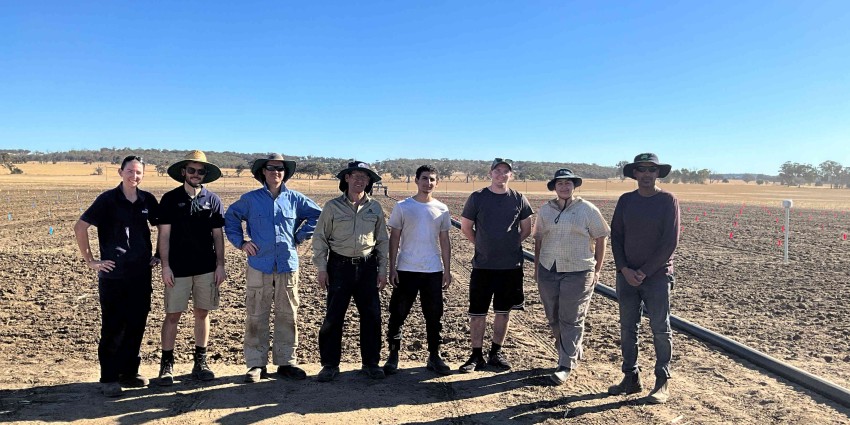
The field day at the Department of Primary Industries and Regional Development’s (DPIRD’s) Dale Research Station, near Beverley, will showcase its frost trials and research collaborations with CSIRO, Agriculture Victoria and breeding companies.
Frost events can cost Australian grain growers hundreds of millions of dollars per annum in lost production and quality.
While so far this year there have not been widespread frost events across the State, there were reports of isolated occurrences in the Great Southern and Lakes district in late September.
DPIRD research scientist Brenton Leske said field day visitors could tour the department’s trial site and see firsthand a range of research initiatives.
“Frost research is progressing on a range of fronts to help farmers to manage the impact of frost events on a range of crops, from pre-breeding research to agronomic management,” he said.
“I will be discussing the new Frost Resistance Indicator Omics biochemistry project – the acronym FRIO means cold in Spanish.
“The project is screening 400 wheat lines nationally to identify any secondary plant compounds that may be an indicator of frost tolerance.
“Department research scientists Chaiyya Cooper and Amanuel Bekuma will give an update on research into ice nucleating bacteria in stubbles, covering the results from both field and controlled environment experiments over the past two years.
“Amanuel and technical officer Michelle Boyd will provide an overview of chickpea germplasm screening for chilling tolerance.
“Research scientist Meredith Guthrie will also give a presentation on frost forecasting, frost maps and climate outlooks.”
The program also includes a discussion by Richard Devlin and Sonja Seabrook from Living Farm on the defoliation of crops to manipulate crop growth – part of the enhancing frost tolerance project.
CSIRO Agriculture and Food Chief Research Scientist Greg Rebetzke will discuss research to validate anecdotal evidence that wheat ear architecture – physical and chemical features of the ear – can influence frost damage and frost recovery.
The three year research project, which has co-investment from the Grains Research and Development Corporation, is examining about 300 different wheat lines from a range of genetic backgrounds at three sites across Australia.
“The project will examine whether the structure of the wheat ear can slow the formation and growth of ice crystals down into the florets,” Dr Rebetzke said.
“The research aims to provide direction to support efforts to breed greater frost-resilience in new wheat varieties.
“Wheat breeders continue to show interest in these traits and the research, which will not only have clear value for WA growers but also wider appeal to growers right across the Australian Wheatbelt.”
The Dale Research Field Day 2024 will be held on Wednesday, 16 October from 10am – 1.30pm at 377 Springdale Road, Dale.
For catering purposes please register here.


